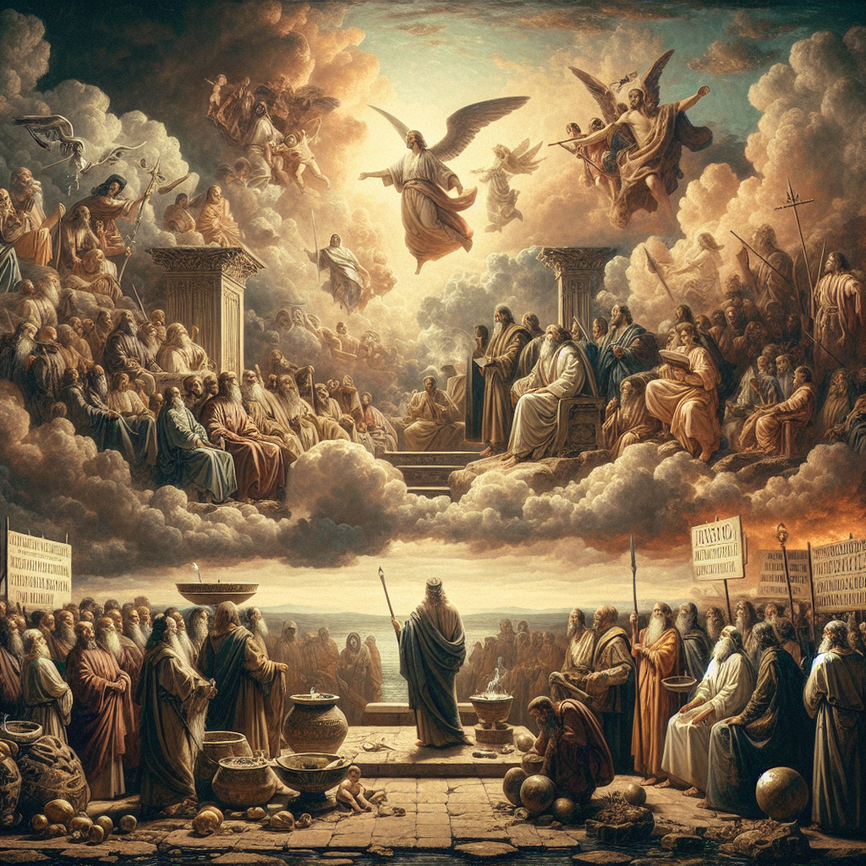Micah 1-4: Judgment, Hope, and Social Justice in Micah's Prophecy

Micah 1-4: Analysis and Reflection
Key Verses
- Micah 1:2-3 (NIV): "Hear, you peoples, all of you, listen to the Lord’s proclamation He is issuing a charge against you, the inhabitants of the earth. The Lord is coming from his holy temple; he is coming to punish the wicked for their sins."
- Micah 2:3 (NIV): "Therefore, I will gather all of you, Jacob, all who are left. I will gather the remnant of Israel; I will bring them together like sheep in a pen, like a flock in its pasture, and the place will throng with people."
- Micah 3:8 (NIV): "But as for me, I am filled with power, with the Spirit of the Lord, and with justice and might, to declare to Jacob his transgression, to Israel his sin."
- Micah 4:1-2 (NIV): "In the last days the mountain of the Lord’s temple will be established as the highest of the mountains; it will be exalted above the hills, and peoples will stream to it. Many nations will come and say, 'Come, let us go up to the mountain of the Lord, to the temple of the God of Jacob. He will teach us his ways, so that we may walk in his paths.'"
Themes
- Judgment and Accountability: Micah emphasizes God's judgment on Israel and Judah for their sins, underscoring the need for accountability and repentance.
- Hope and Restoration: Despite the judgment, Micah offers hope for restoration and redemption, emphasizing God's covenant love and promises.
- Social Justice: Micah condemns the injustices and corruption of Israel's leaders, highlighting the importance of justice, mercy, and humility.
Historical Context
Micah prophesied during the reigns of Jotham, Ahaz, and Hezekiah (739-686 B.C.), a time marked by significant political and social upheaval. The northern kingdom of Israel was on the brink of falling to the Assyrians, while Judah faced internal corruption and external threats.
Cultural Context
- Leadership and Corruption: Micah addresses the corrupt practices of Israel's leaders, who prioritized wealth and power over justice and the well-being of the people.
- Social Inequality: The prophet highlights the exploitation of the poor and vulnerable by the wealthy and powerful.
- Covenant Relationship: Micah emphasizes the importance of Israel's covenant relationship with God, stressing the need for faithfulness and obedience.
Etymology
- Hebrew "da-bar" (Micah 1:1): Means "the word" or "expression of a complete thought," emphasizing the prophetic nature of Micah's message.
- Hebrew "shema" (Micah 1:2): Means "hear" or "listen," underscoring the importance of paying attention to God's message.
Putting it into Practice
- Personal Reflection: Reflect on areas in your life where you may be compromising justice, mercy, or humility. Seek to align your actions with God's principles.
- Social Responsibility: Engage in activities that promote social justice and support the vulnerable in your community.
- Covenant Faithfulness: Evaluate your covenant relationship with God, ensuring that you are faithful and obedient to His will.
Questions
- How do you respond to God's call for justice, mercy, and humility in your daily life?
- In what ways can you work towards creating a more just and equitable society?
- How do you balance the need for accountability with the promise of restoration and redemption in your personal faith journey?
Reflecting on these questions can lead to personal growth, spiritual development, and a deeper understanding of the text.